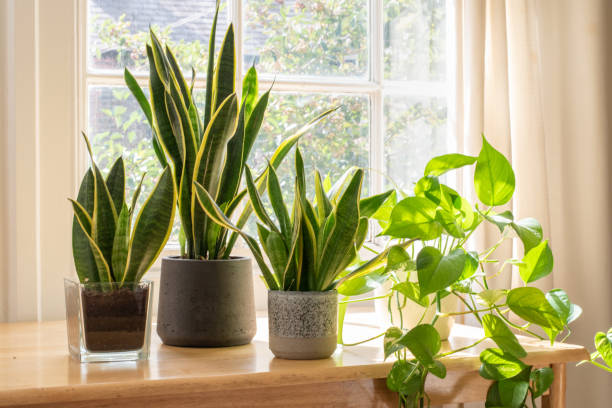Pet Owners
Got these House Plants that are NOT Pet-Friendly?
When you first brought your fur baby home (dog or cat), you must’ve made a lot of arrangements in the house to help them feel comfortable. New toys, lots of food, water bowls, and what not.
But did you know that your indoor garden/décor will need an update, too? There are certain plants that are NOT good for your pet’s health because they can cause toxic reactions or some kind of allergies.
Pets will often gnaw & chew on plant leaves as they use it (or grass, when available) as natural fiber to aid their digestion.
So you’re better off shifting these pots (if you have ’em) to the outdoor balcony that your pet won’t be able to access or get rid of them altogether to prevent any disasters.
To help you exercise caution, here’s a handy list of dangerous non-pet-friendly plants to steer clear of in your household. Check out our other list of alternatives that you can safely harbor in place of these!
Money Plant

This may be said to bring fortune to those who water it regularly, but unfortunately, it’s not recommended for those of us with pets. It is toxic to both canines & felines. Consumption may cause vomiting, diarrhea, and seizures.
Don’t worry, our black kittens (or dogs) will bring us plenty of luck, as some Japanese legends promise.
Jade

Also known as a rubber plant, this one causes toxicity in both cats & dogs, if consumed, although that would rarely happen.
Symptoms include vomiting, lethargy, low heart rate, and problems with muscle coordination.
Lilies

Lilies, especially the Prairie/Rain lily type, can give instant kidney failure issues to cats, and cause mild to severe gastrointestinal (GI) upset in dogs.
This allegedly occurs not just when directly consumed but also if the pet comes in contact with the pollen, or drinks water in which the plant’s stalks were soaked.
Other harmful types include The Lily of the Valley, Peace Lilly, and Call Lily. There are less risky options but there’s no point in taking a chance on them.
Snake Plants

This is a widely used piece of natural décor in urban Indian households because its easily available in the market.
But if ingested, the saponins (chemicals) present in its leaves can cause diarrhea, nausea, and vomiting.
Aloe Vera

Surprise, surprise! While Aloe Vera has immense health benefits for our skin, digestion, and immunity, it’s not much of a help to our four-legged companions.
The substance called Aloin pulls extra water into the pet’s colon, which can lead to complications such as loss of appetite, change in urine color, lethargy, diarrhea, and tremors.
Philodendron
/grow-philodendron-houseplants-1902768-04-8bee1496f67e41c392304329eaea505e.jpg?w=1020&ssl=1)
Philodendron is another common occurrence one will notice on many work desks in offices or at home. It’s a very popular house plant because of its sleek & clean appearance.
Belonging to the family of Araceae, it can cause oral irritation, excessive drooling, and pain or swelling in the mouth, tongue, and lips.
Dumb Cane
/dumb-cane-dieffenbachia-definition-1902751-5-a552c54030764900b2b17975efab5ff4.jpg?w=1020&ssl=1)
Last but not the least, the calcium oxalate crystals in Dumb Cane can also cause gastrointestinal upsets, and irritation/burning sensation in the mouth, lips, and tongue, if erroneously consumed by animals.
Watch out for it besides your beds, sofas, and other furniture in the living room.
Conclusion
That was our list of non-pet-friendly plants that you should avoid bringing into your home. We covered Jade, Lilies, Aloe Vera, Snake Plant, Philodendron, and Dumb Cane.
This obviously doesn’t mean that you can’t have any nice plants to add a touch of natural freshness to your overall décor. There are some options that are safer for animals & humans alike, so gardening enthusiasts need not sacrifice their hobbies right away!
If anything, indoor plants help to purify the air and make the whole space look green & clean, so you can head over to our list of safe pet-friendly plants to watch out for on your next shopping spree.
Happy planting!

